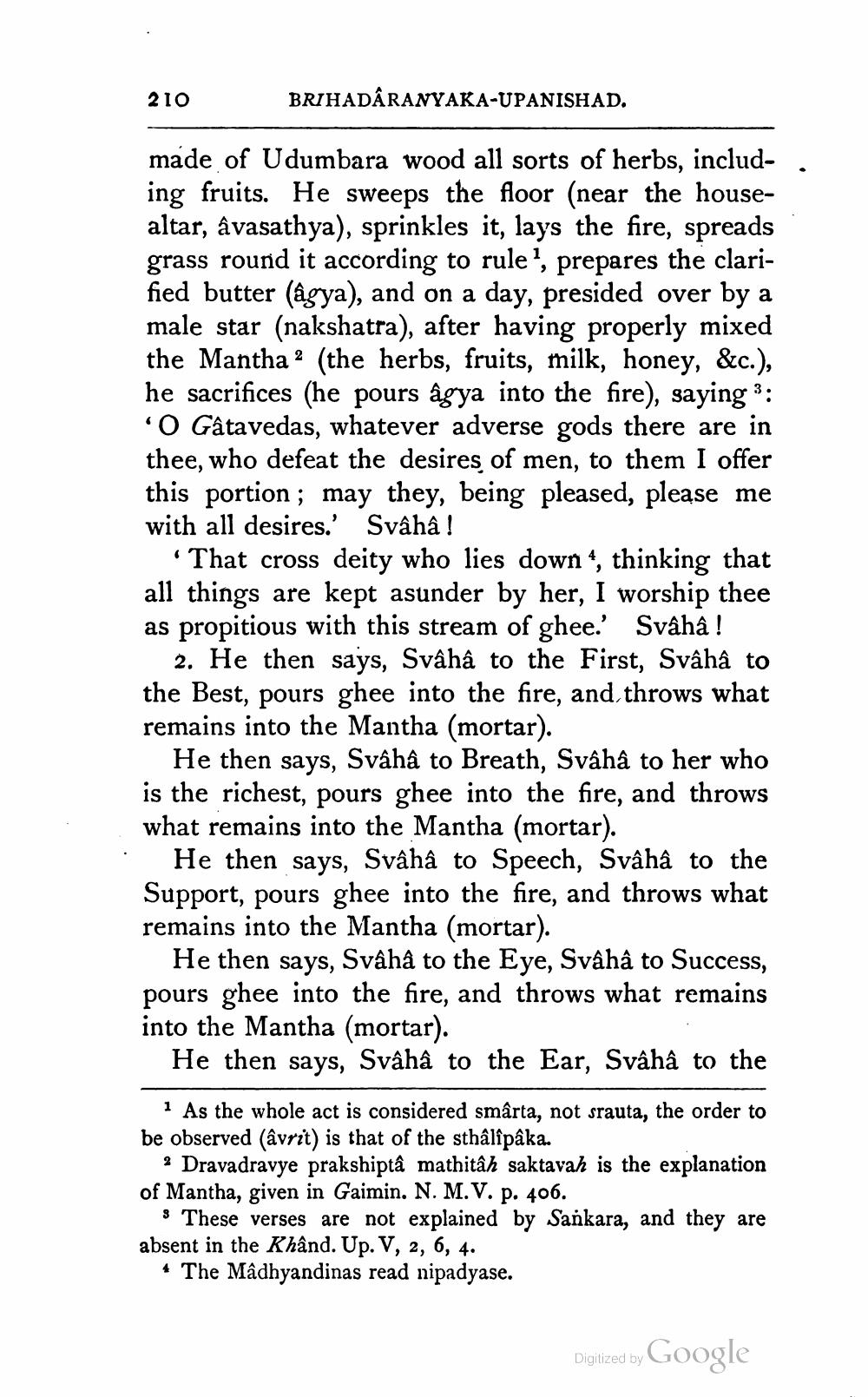________________
.
210
BRIHADARANYAKA-UPANISHAD.
made of Udumbara wood all sorts of herbs, including fruits. He sweeps the floor (near the housealtar, âvasathya), sprinkles it, lays the fire, spreads grass round it according to rule, prepares the clarified butter (âgya), and on a day, presided over by a male star (nakshatra), after having properly mixed the Mantha 2 (the herbs, fruits, milk, honey, &c.), he sacrifices (he pours âgya into the fire), saying 3: "O Gâtavedas, whatever adverse gods there are in thee, who defeat the desires of men, to them I offer this portion; may they, being pleased, please me with all desires.' Svâhâ !
'That cross deity who lies down 4, thinking that all things are kept asunder by her, I worship thee as propitious with this stream of ghee.' Svâhâ !
2. He then says, Svâhâ to the First, Svâhâ to the Best, pours ghee into the fire, and throws what remains into the Mantha (mortar).
He then says, Svâhâ to Breath, Svâhâ to her who is the richest, pours ghee into the fire, and throws what remains into the Mantha (mortar).
He then says, Svâhâ to Speech, Svâhâ to the Support, pours ghee into the fire, and throws what remains into the Mantha (mortar).
He then says, Svâhâ to the Eye, Svâhâ to Success, pours ghee into the fire, and throws what remains into the Mantha (mortar).
He then says, Svâhâ to the Ear, Svâhâ to the
1 As the whole act is considered smärta, not srauta, the order to be observed (âvrit) is that of the sthâlîpâka.
Dravadravye prakshiptâ mathitâh saktavah is the explanation of Mantha, given in Gaimin. N. M.V. p. 406.
These verses are not explained by Sankara, and they are absent in the Khând. Up. V, 2, 6, 4.
The Mâdhyandinas read nipadyase.
Digitized by Google




